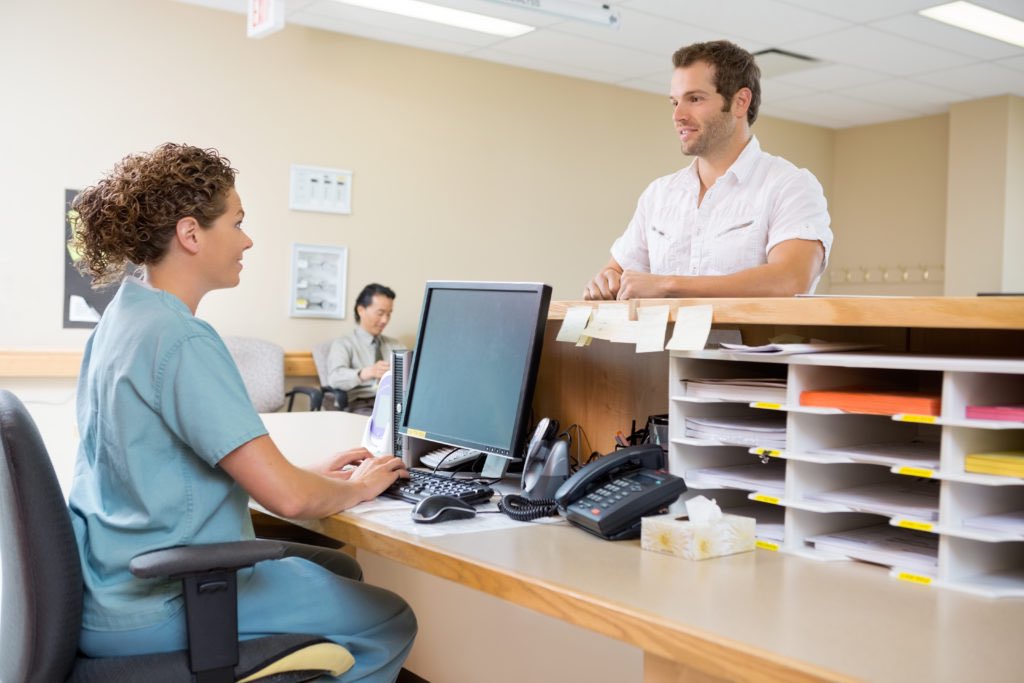Each year, the number of visits to outpatient surgery centers goes up. Why? Convenience and cost are the two main reasons patients seek care at outpatient surgery centers, also called ambulatory surgery centers (ASC), instead of hospitals.
Now, more than two-thirds of operations performed in the United States occur in ASCs, according to Kaiser Health News—that’s significant. But even as outpatient procedures become more commonplace, there’s one looming question: are ambulatory surgery centers safe?
The answer is a resounding yes, at least most of the time and for most people. As with anything regarding healthcare, there’s no one-size-fits-all solution. Still, ASCs are a great alternative for people looking to save money on medical procedures, without compromising on quality.
Learn more about how the quality and cost of healthcare are unrelated.
Keep reading to learn how ambulatory surgery centers are regulated, when it’s best to go to a hospital, and how you can ensure you have a good experience at an ASC.
How are outpatient surgery centers regulated?
Surgeons at ASCs routinely and safely perform many types of outpatient procedures. One of the reasons they are so safe is that they are held to the same standards as hospital-based facilities. The Ambulatory Surgery Center Association (ASCA) exists to make sure ASCs deliver “high-quality, cost-effective care” to their patients.
The ASCA notes that, just like hospital outpatient centers, ASCs have to comply with a lot of laws, rules, and regulations. At a minimum, all ambulatory surgery centers have to have a state license. For most, the regulation doesn’t stop there.
Outpatient surgery centers can get three types of accreditation
If an outpatient surgical center wants to be a part of a health insurance network (which many do, for financial reasons), they need to have more than a state license. There are three major accreditation organizations that allow a provider to become part of an insurance network. Each of these organizations requires that rigorous guidelines be met before an ASC can become certified. They have to renew these certifications regularly, too.
- Accreditation Association for Ambulatory Health Care
- Joint Commission on Accreditation of Healthcare Organizations
- American Association for Accreditation of Ambulatory Surgery Facilities
Even if the center chooses not to be in-network, the majority of them will seek out accreditation. If a center is not accredited, it’s probably better to keep looking.
Ambulatory surgery centers can be Medicare-certified
For patients with Medicare or Medicaid, good news: ASCs can become Medicare-certified. This means they’ve undergone even more testing to meet the eligibility requirements for program participation. Even if you don’t have Medicare, look for a center who is certified by them.
Outpatient surgery centers are held to a high safety standard
In addition to being accredited by the healthcare rating agencies (Medicare included), ASCs have to:
- Maintain a strict sanitary environment
- Establish and maintain programs and procedures for preventing infections
- Conduct comprehensive assessments of the quality of care they provide
Patient safety is kept front-of-mind for hospitals and ambulatory surgery centers alike. There’s really no difference when it comes to the emphasis that is placed on high-quality, safe care.
How well are ASCs equipped to handle emergencies?
In general, different types of healthcare facilities can handle different levels of emergency. ASCs can provide minor emergency care. That is, if you have a minor complication during your medical procedure, your surgeon can probably handle it then and there.
However, if you have a major complication, you’ll likely be transferred to a nearby hospital. Overall rates of transfer to hospitals from ASCs are very low. Even the state with the highest transfer rate — Alaska — has only a 1.420 rating. This means that out of 1,000 procedures, less than 2 required a hospital transfer. Those are pretty good odds. You can see which states have the lowest ASC to hospital transfer rates and which have the highest.
Before scheduling a procedure at an ASC, find out if your doctor has admission rights to a nearby hospital, just in case there is an emergency.
When is it better to go to a hospital?
Despite ASCs being incredibly safe for most patients, they aren’t for everyone. If you have serious underlying health issues (even if they are unrelated to the procedure you’re getting), you may want to consider going to a hospital instead.
Hospitals are generally better equipped to handle life-threatening emergencies. Even if the medical procedure you’re getting is low-risk, certain health issues can make complications more likely.
7 risk factors that can negatively impact the safety of a procedure at an ASC:
- Congestive heart failure
- Chronic lung disease
- A bleeding disorder such as hemophilia
- Serious arrhythmia
- Obesity
- Uncontrolled diabetes
- A heart attack within the past four to six months
Ultimately, whether you go to an ASC or hospital will be something you and your doctor decide together. If they think you should have your procedure at a hospital, they’re probably right. Otherwise, going to an ASC is a safe and more affordable alternative.
Questions to ask your outpatient surgery center
As you can see, going to an ambulatory surgery center is safe, as long as you don’t have major underlying health problems. Still, it’s always a good idea to get as much information as possible about a center. This will help you to feel confident in your decision.
Here are 6 questions to ask your ASC, before you schedule your procedure:
1. Is your center accredited? Be sure they are certified by at least one of the following: Accreditation Association for Ambulatory Health Care, Joint Commission on Accreditation of Healthcare Organizations, or American Association for Accreditation of Ambulatory Surgery Facilities.
2. What is the hospital transfer rate? Hospital transfers can happen for a number of reasons but, ideally, the ASC you choose will have very low transfer rates.
3. How many patients have to be hospitalized due to infection after this procedure? Their answer should be “zero” or as close to it as possible. High infection rates reflect poorly on the ASC facility and staff.
4. How much experience does the surgeon have performing my medical procedure? Studies have shown, time and again, that surgeons with more experience performing a specific type of procedure have higher success rates. That also means they have lower readmission, hospitalization, and complication rates. Look for a doctor who has performed your procedure at least 50 times within one year.
5. Who is the anesthesiologist? You may need to go under general anesthesia for your procedure. If so, ask to make sure the anesthesiologist you’ll see is board-certified. Bonus points if they’re in your insurance network, meaning you’ll pay less to see them.
6. What’s the emergency plan? Consumer Reports recommends that you “ask whether emergency medications and resuscitative equipment are on-site, if there is a procedure for using them, and whether your doctor is certified in advanced resuscitation techniques. The facility should also have a plan for transferring you to a hospital, if necessary.”
7. Are you a part-owner? This is one question you should ask your doctor if he or she recommends you have a medical procedure done at an outpatient center. While outpatient surgery centers are safe most of the time and for most people, it’s important to keep an eye out for doctors who have a vested financial interest in you going to a facility that gives them a pay out. That’s not to say you shouldn’t get surgery at an outpatient center if your doctor is part-owner. But you should get a second opinion before following their lead.
You don’t have to go it alone
Don’t let the cost of a medical procedure stop you from getting the care you need. At New Choice Health, we’ve leveraged our knowledge of the industry to help you get a fair price for every procedure. Use New Choice Health to compare costs now!







